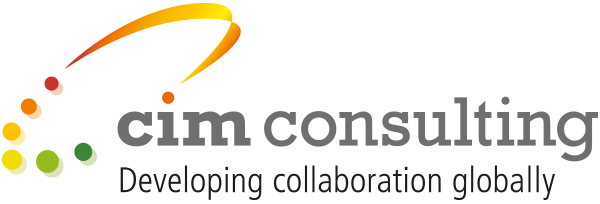Teams and Collaborative Groups
We get teams, groups and partners in flow
The quality of collaboration in international teams, groups, and between partners is decisive for the successful implementation of global goals and strategies. By bringing together diverse competencies and perspectives they can also be important drivers of innovation.
In reality, however, collaboration across borders and boundaries often fails to exploit its full potential. Misunderstandings, conflicts of interest, distance, lack of trust: they withdraw energy from the team, create frustration leading to resignation and underachievement. Distributed leadership and matrix structures are an additional challenge.
We help international teams, groups and partners to work together effectively, by supporting them to
- build and develop strong connections between group members

- unite people around shared goals, a common identity and shared work practices
- mobilize the best competencies and talents as well as the perspectives and ideas of each and every member with the objective to share them and contribute them to the group goals.
- integrate approaches and diversity in such a way that new and better solutions can come about.
- make sure the organization supports the collaborative effort in the best possible way.
Taken together, these steps create a solid platform of trust and the conditions to instil both a willingness and an ability to contribute towards common goals. Alternating between diversity – cultural and other – and common identity, goals and working rules is a central part of our effort.
We offer:
Developing and integrating teams and groups
 We design and conduct workshops for team development and team integration with a focus on international, multicultural teams. Close cooperation with the team leader(s) is a must, as we want to make sure that we design the workshop specifically to your needs. An awareness of and competence for dealing with cultural differences are usually part of our workshops, however, we tend to focus more on building community and shared collaborative practices.
We design and conduct workshops for team development and team integration with a focus on international, multicultural teams. Close cooperation with the team leader(s) is a must, as we want to make sure that we design the workshop specifically to your needs. An awareness of and competence for dealing with cultural differences are usually part of our workshops, however, we tend to focus more on building community and shared collaborative practices.
Managing external partnerships

We counsel on and moderate processes of collaboration with external partners and also offer seminars on “working in partnership”.
The focus is, amongst others, on complementarity of partners and their objectives, building trust, shared planning and decision making, openness towards and acceptance of differences, creating community, and developing rules for interaction and shared work processes.
Counselling and coaching team leaders
 In our experience it can be very effective to support the team leader directly on facilitating collaboration.
In our experience it can be very effective to support the team leader directly on facilitating collaboration.
We call it “counselling”, a form between consulting, coaching and providing advice and input, with sufficient room for reflection and the development of new approaches. In this setting we sometimes use instruments and tools such as the TIP™ International Profiler, the Argonaut Online Assessment or the IDI Intercultural Development Inventory. An important aspect of leading international and mostly virtual teams that we tend to zoom in on is leadership without direct line responsibility, i.e. leading by influencing.
Team Diagnosis, Team Conflicts
 Conflicts in international teams or groups, or between partners, can have a mixture of reasons: concerns that have not been formulated or that have not been addressed, hidden objectives and agendas, mixed loyalties, dominating behaviour by one party, misunderstandings from cultural and other differences, lack of communication or common work practices, and also bad management decisions that one side blames on the other.
Conflicts in international teams or groups, or between partners, can have a mixture of reasons: concerns that have not been formulated or that have not been addressed, hidden objectives and agendas, mixed loyalties, dominating behaviour by one party, misunderstandings from cultural and other differences, lack of communication or common work practices, and also bad management decisions that one side blames on the other.
To develop understanding and find the connections in such complex situations requires skilled interviewing of the relevant players, intercultural sensitivity and real life experience of international collaboration. We use all of these to get to a diagnosis, sometimes complementing our interviews with instruments such as the ITTI International Team Trust Indicator or VPA®, Virtual Performance Assessment. Depending on the situation and setting we then share our findings with your respresentatives and help to develop measures to solve the conflict. This can but does not necessarily take the form of workshops with whole teams.
Virtual Teams, Virtual Performance Assessment VPA®
 International Teams are mostly virtual teams. Therefore one focus of our work with teams and groups is the virtuality of the team situation.
International Teams are mostly virtual teams. Therefore one focus of our work with teams and groups is the virtuality of the team situation.
We are licenced to carry out the VPA®, Virtual Performance Assessment, a diagnostic instrument that has been developed by our partner intercultures. The VPA is a tool that helps to access complex international team situations and provides an excellent basis for the development of virtual teams and the organizational aspects surrounding them. It is the first step in the VPI® virtual performance improvement process.
Overcoming silo-thinking
 Many companies complain that business units or subgroups have developed the kind of silo-thinking which makes it impossible to learn from each other and use know-how to the greater benefit of the entire organization.
Many companies complain that business units or subgroups have developed the kind of silo-thinking which makes it impossible to learn from each other and use know-how to the greater benefit of the entire organization.
We help you to conceive concrete measures to create some openings for shared tasks and projects and ultimately lead to more synergies.



